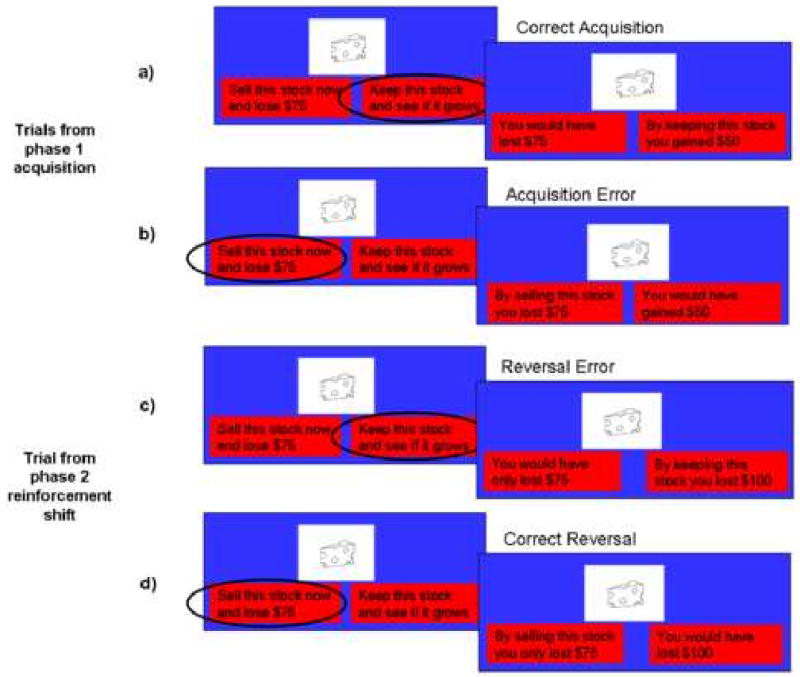Figure 1.

The stock market task. One distinct stimulus type is shown. The “cheese” stock undergoes a change in value that makes response change advantageous (depicted in a-d). Each row represents a separate sample trial. a) Correct acquisition trial. Left: The response option screen shows the stock (cheese), and the current market value of the stock “Sell this stock now and lose $75.” Next to the current market value is the alternate response option: “Keep this stock and see if it grows.” In this case, the participant elected to keep the stock. Right: The feedback screen. Here the subject gained $50 instead of losing $75 as indicated by the updated red boxes, which show the value of the response just made (“By keeping this stock, you gained $50”), as well as the value of the forgone response (“You would have lost $75”). b) Acquisition error. Left: The subject chooses to sell the stock now and lose $75. Right: The feedback screen indicates that selling the stock cost the subject $75 whereas they would have gained $50 had they kept the stock. c) Reversal error. This sample depicts a stimulus that changes in valence of reinforcement and best response. Left: The subject chooses to keep the stock. However, this stimulus has undergone a reversal. Right: The feedback screen indicates that while selling the stock still costs the subject $75, keeping the stock now costs even more ($100). So in the reinforcement shift phase, this stimulus underwent a change of valence and best response (the value of keeping the stock went from a gain of $50 to a loss of $100 and the best response changed from keeping the stock to selling it). d) Correct reversal. Left: The subject now chooses to sell the stock. Right: The feedback screen reflects that the subject received a loss of only $75 by selling the stock versus the $100 loss that would have resulted from keeping it.
